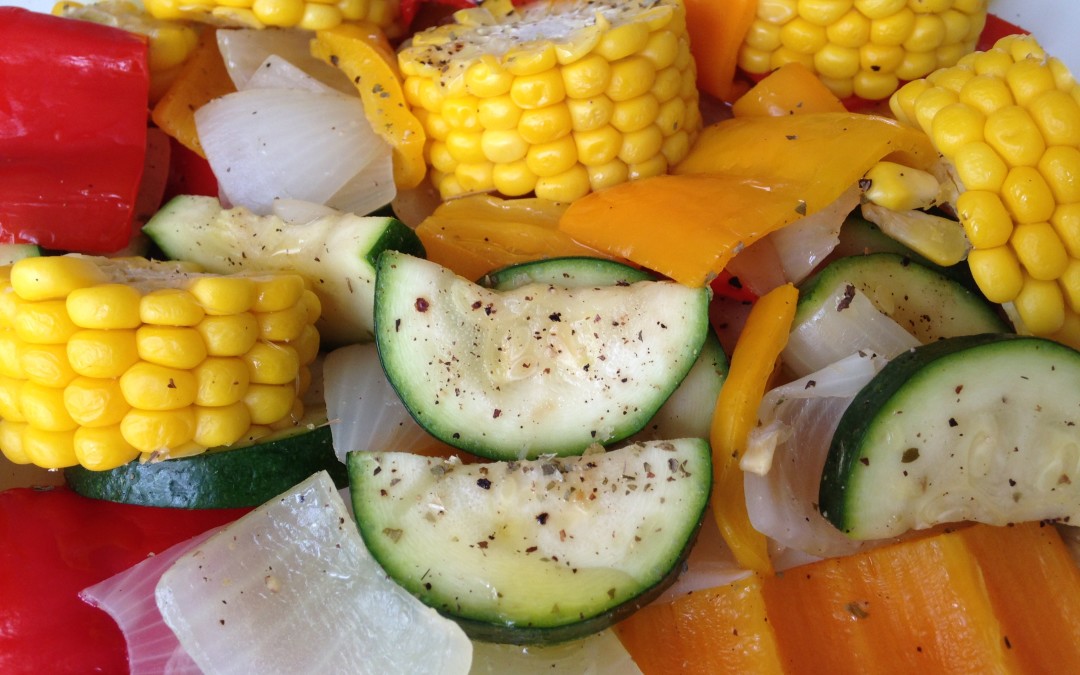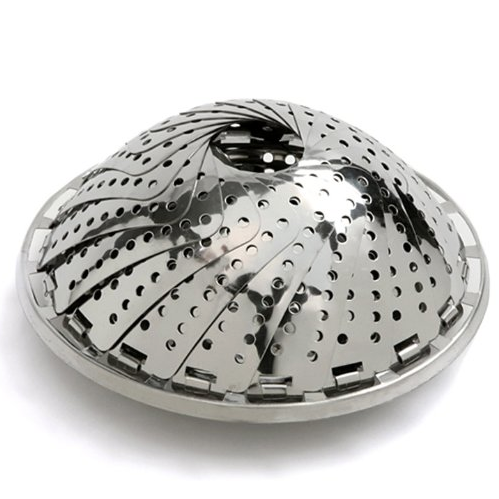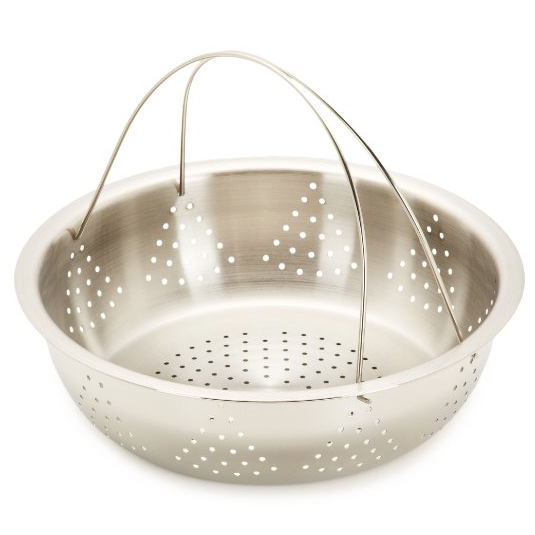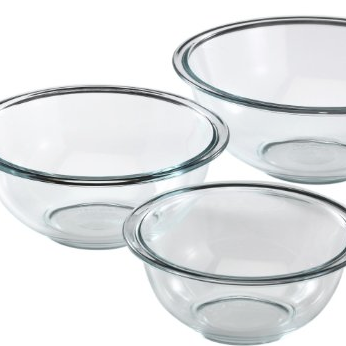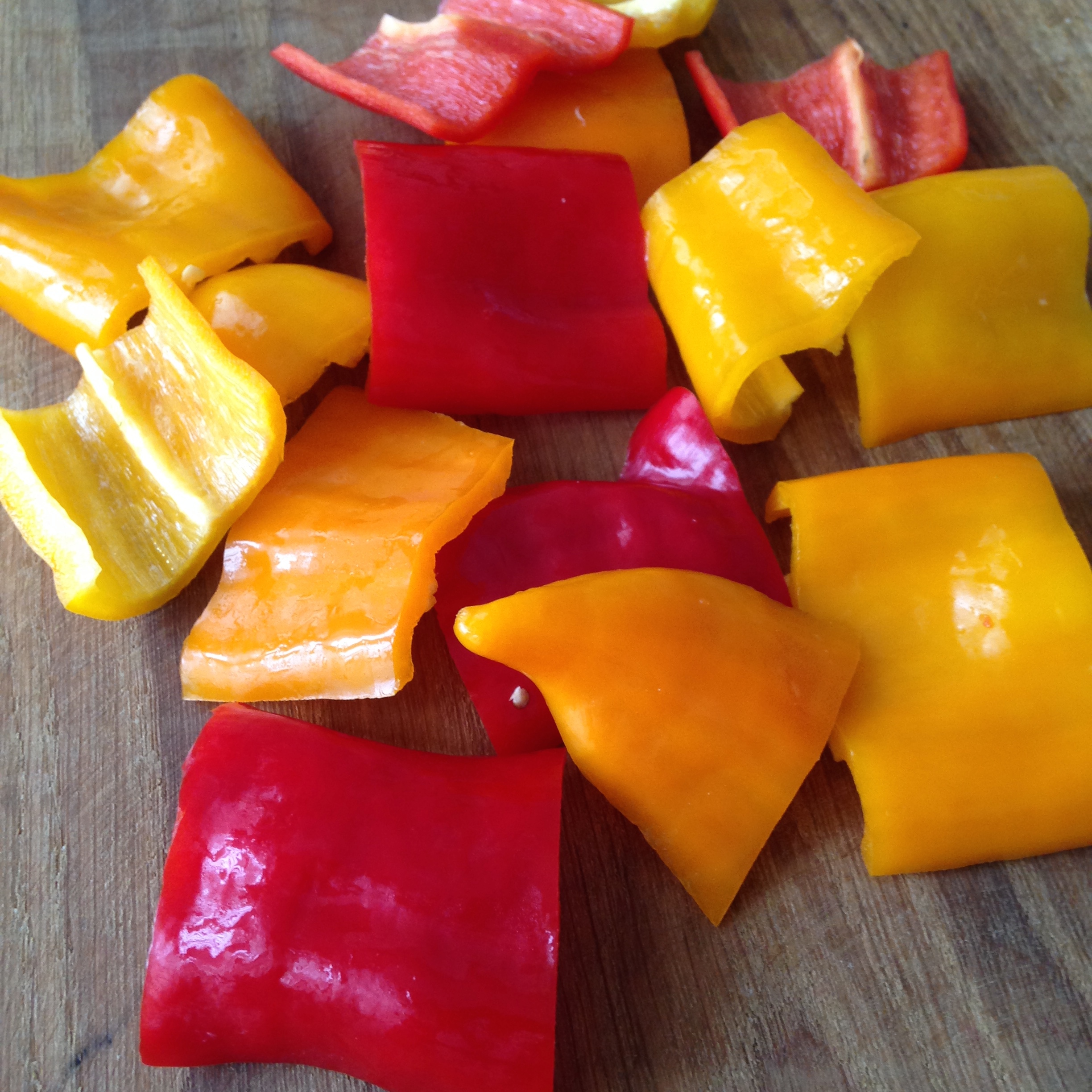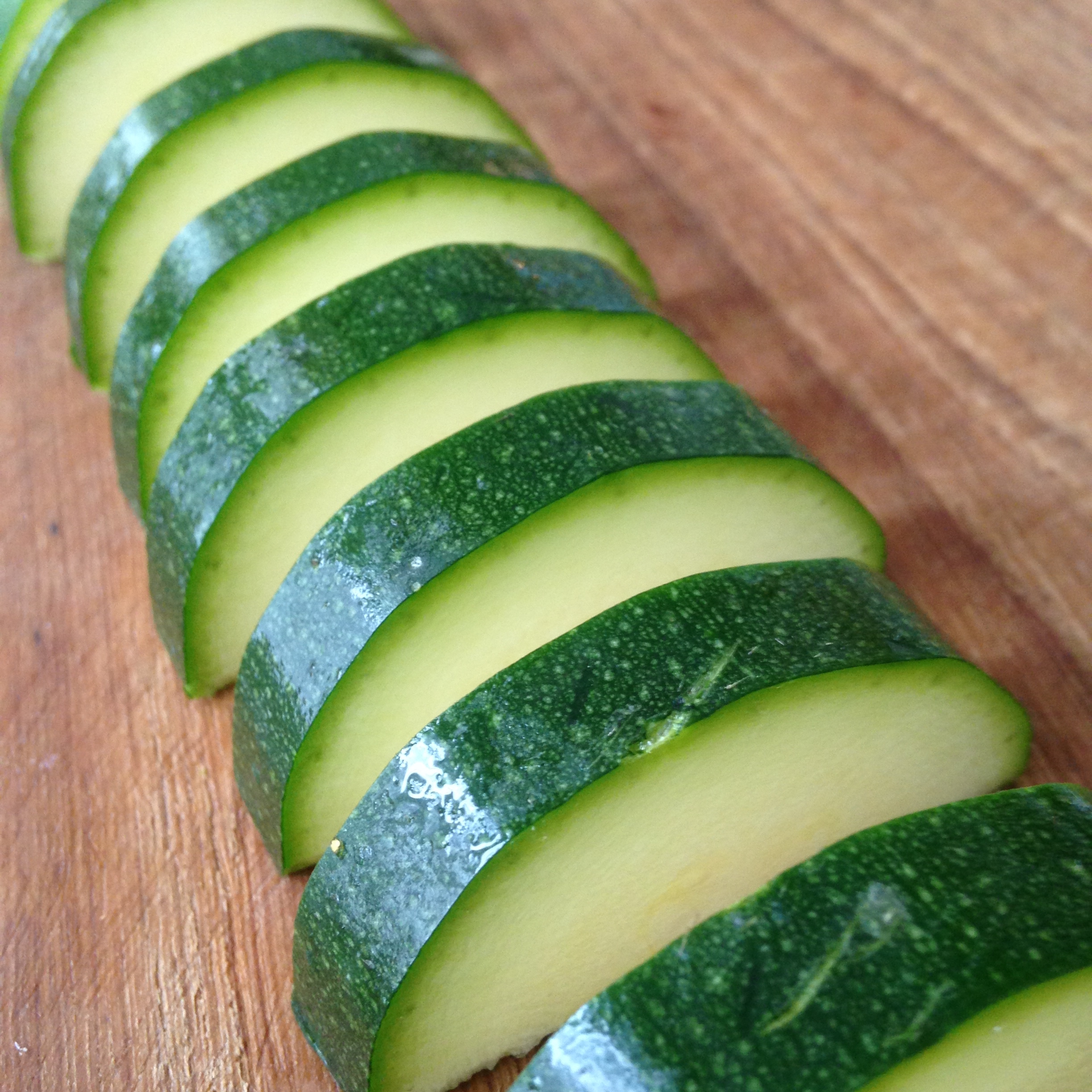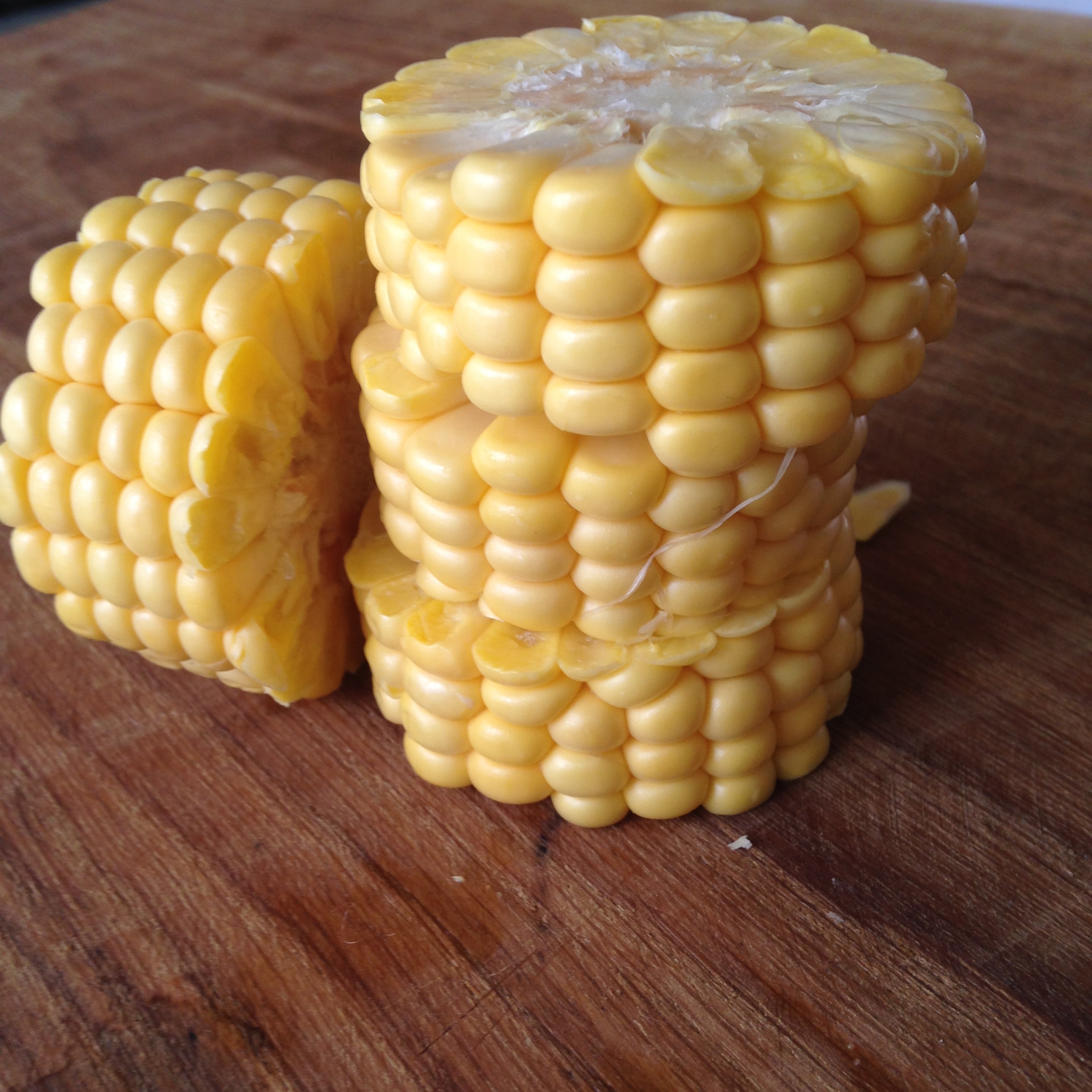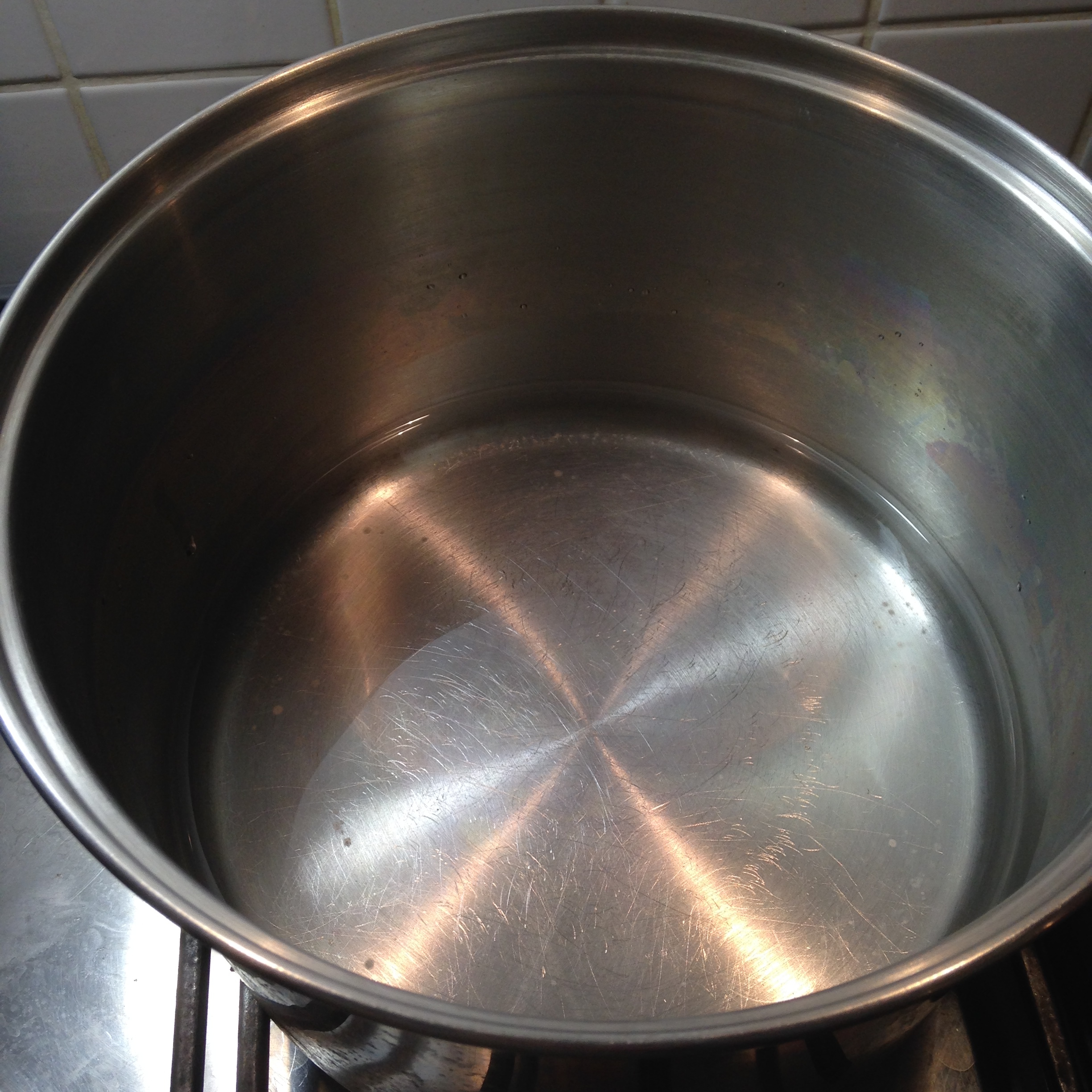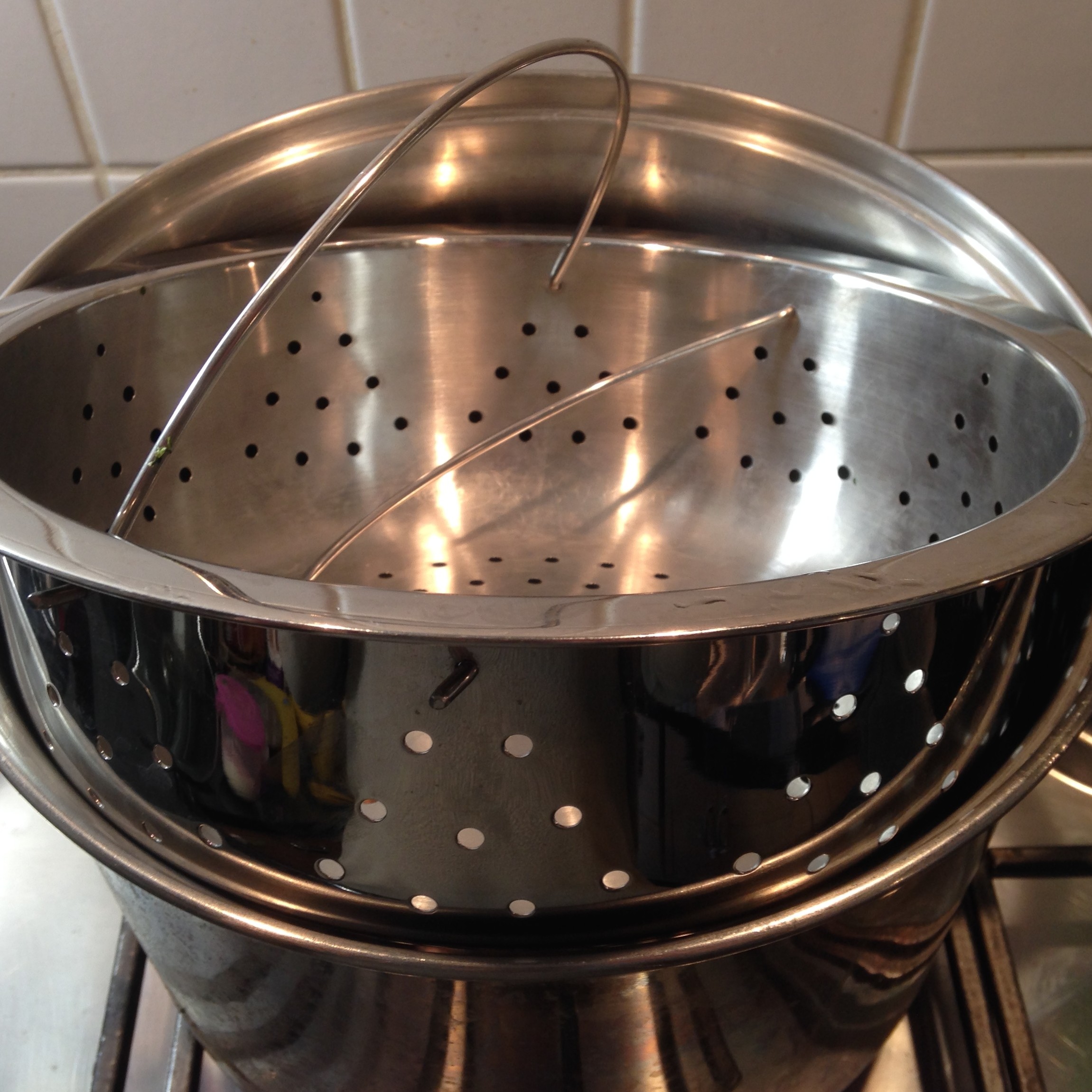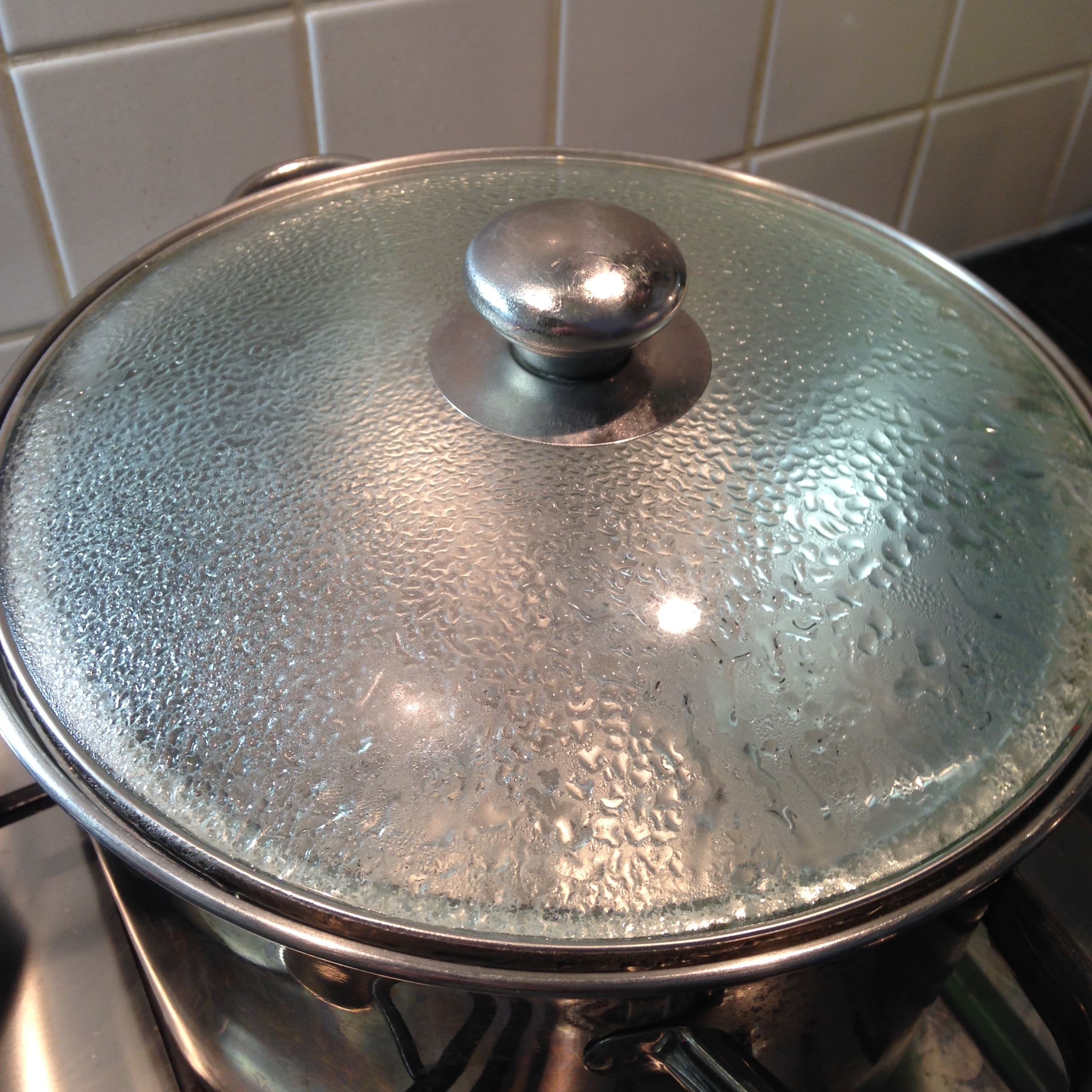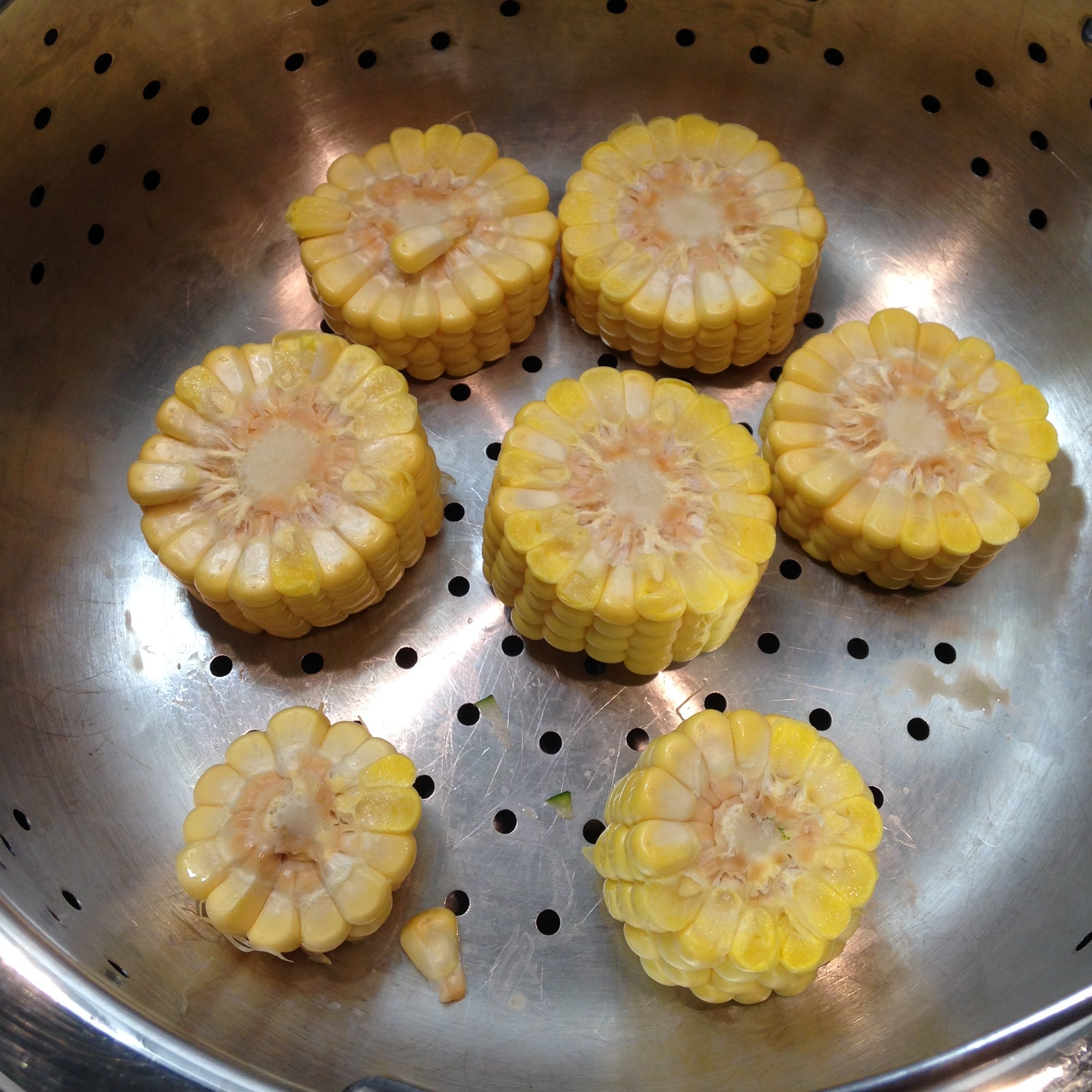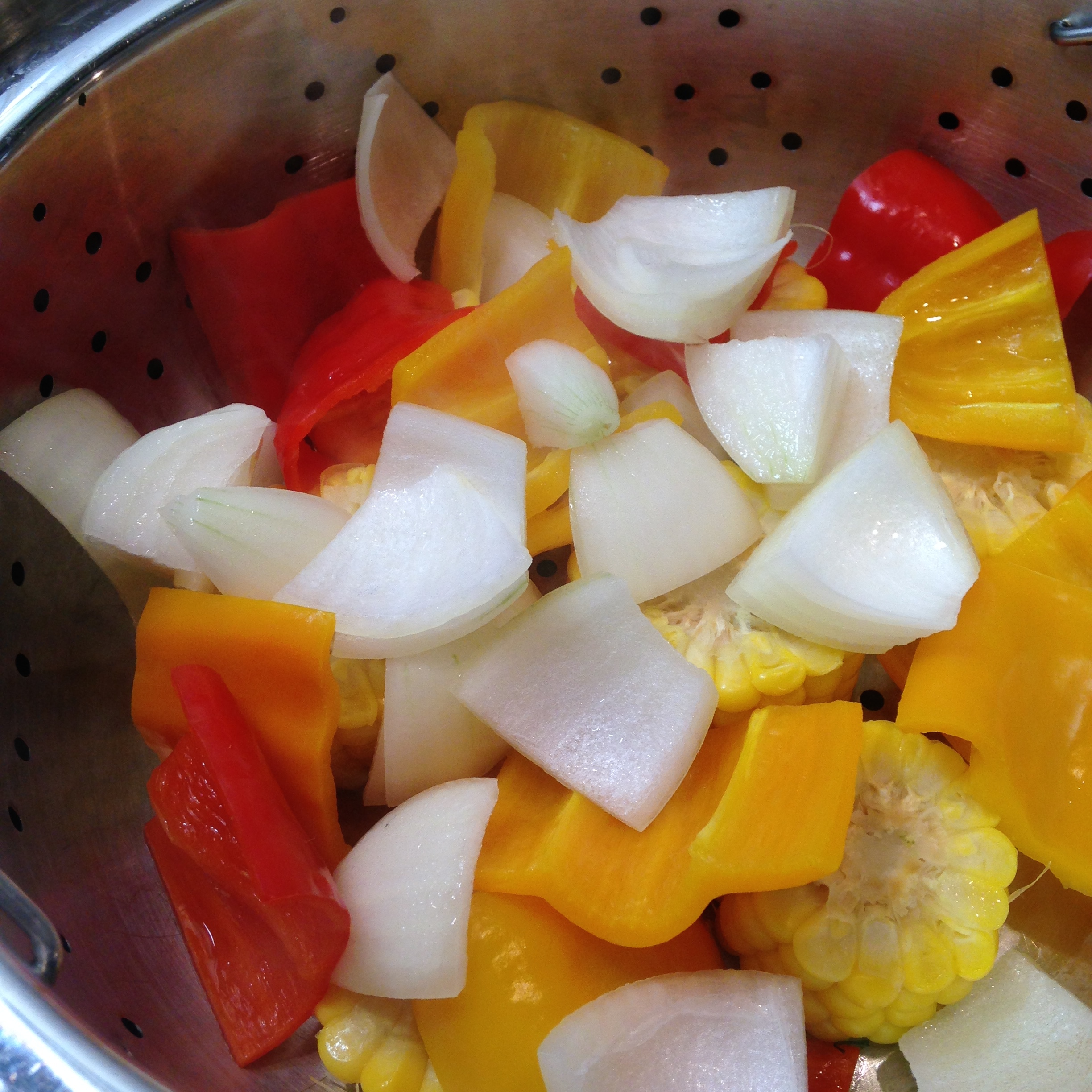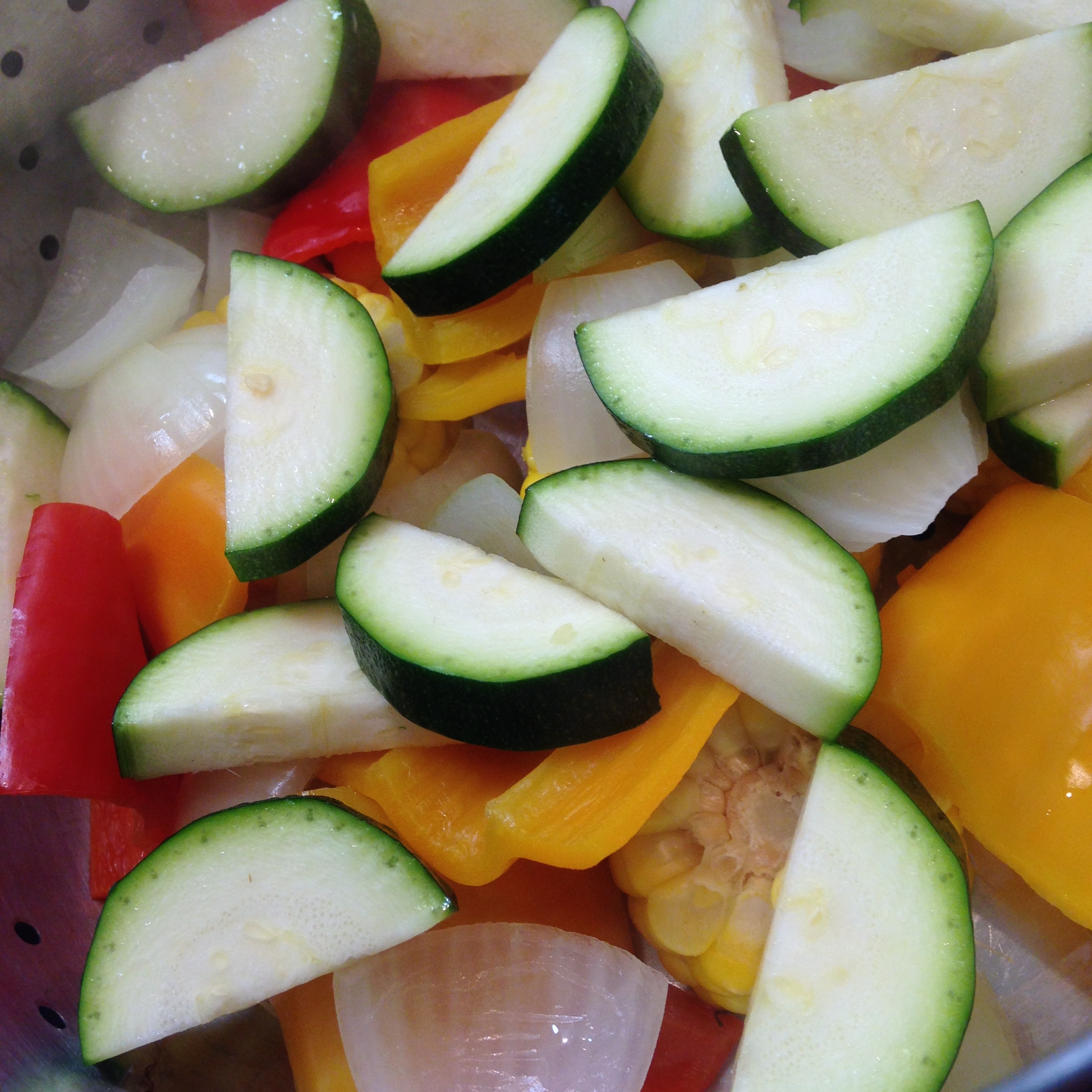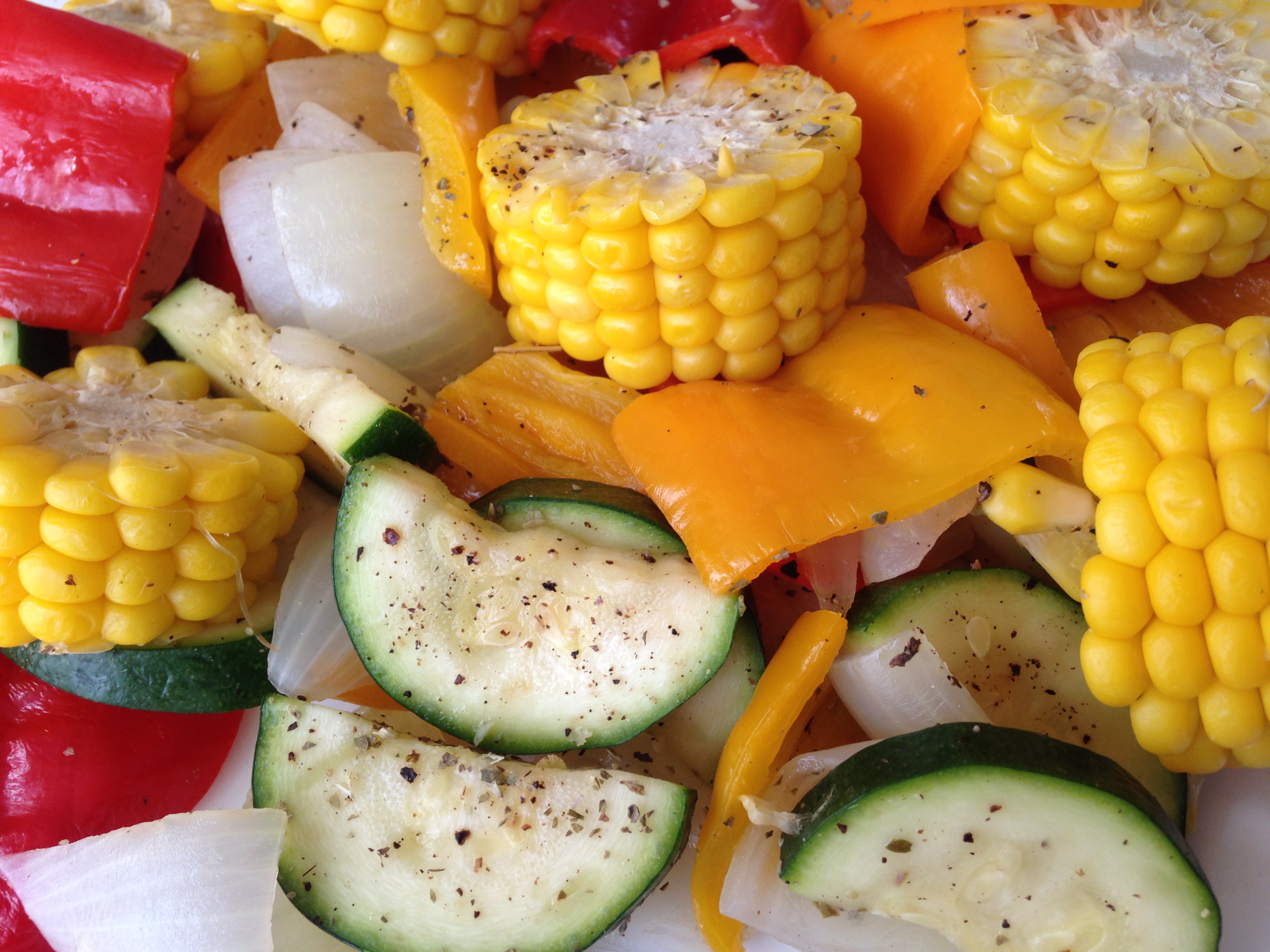How To Steam Vegetables
Of all the ways to cook vegetables, steaming and blanching are probably the easiest and quickest ways to do it. There really is nothing more simple than taking vegetables and throwing them in boiling water or suspending them over boiling water. When it comes to steaming, the biggest challenges are cutting the vegetables the same size and taking them out of the steamer when they have reached your desired doneness. I think you might agree that using the word “challenge” to describe these things is a bit of a stretch.
What makes steaming even more simple is that you don’t even need to think about which vegetable is best for steaming. I will make the bold statement and say that there is not a single vegetable that can not be steamed. You name it and you can be pretty sure that it can be cooked suspended over boiling water until just tender. Artichokes? Yes. Sweet Potatoes? Yes. Mushrooms (I don’t think these are really vegetables but…)? Yes. Broccoli? Obvious – every other blog post in the whole entire interweb uses broccoli and cauliflower and carrots, too, as the examples for steaming. Even leafy vegetables can be steamed. In fact, leafy vegetables can be used as the source of water for steaming! How about that! Line a medium pot with lettuce leaves, fill with a vegetable that has been diced small or peas, cover with more lettuce leaves, turn on the heat to medium, and the water in the lettuce will steam the vegetables wrapped in between. That is some old school trickery, but it works.
Here are the steps for steaming vegetables…
How To Steam Vegetables
Chop the vegetables as evenly as possible. Cutting them evenly helps ensure that they cook evenly and within the same time. Steaming needs to be a fast method of cooking so the vegetables don’t get mushy. This means the vegetables should be cut relatively small – 1-1.5 inches.
How To Steam On The Stove In a Steamer Basket
How To Steam On The Stove With a Steamer Insert
How To Steam In The Microwave
A steamer set up is easily fashioned with things around the kitchen. Really all that is needed is a pot to boil water in, something that can fit in the aforementioned pot that is heat safe and can hold the vegetables and allow the steam in (like a sieve or a colander. Even a heat safe bowl can be used. So what if some water is caught in the bottom.) and a lid (this can even be foil). A bamboo steamer is a great tool to steam in and they are usually pretty cheap.
Fill a large pot with enough water such that when a steamer basket is placed in the pot, the water level is just under the basket – about an inch. The vegetables should not be submerged.
Many pasta pots come with a steamer insert. Fill the pot with a few inches of water and place the steamer insert in the pot. The inserts usually fit into the rim of the pot and sit at the very top.
A microwave safe bowl is needed for steaming in the microwave. Glass is best as glass bowls tend to seal well with plastic wrap. Add 2-3 tbsp of water to the microwave safe bowl.
Turn the heat on high and bring the water to boil.
Turn the heat on high and bring the water to boil.
Add the vegetables to the microwave safe bowl.
Add the vegetables to the steamer basket in a single layer. Cover the pot with a tight fitting lid.
Add the vegetables to the steamer insert in a single layer. Cover the pot with a tight fitting lid.
Add the vegetables to the bowl. Cover with plastic wrap. Poke a few steam vents into the plastic wrap.
If you are steaming mixed vegetables, place the harder vegetables in first, allow them to steam a few minutes, then add the softer, faster cooking vegetables to the steaming vessel so they finish cooking at the same time. Feel fee to to ignore the “add the vegetables in a single layer” rule. I do not think this is totally necessary and it is hard to layer veggies when there is burning hot steam coming up. I often ignore this rule even when I am steaming just a single variety of vegetables.
Steam the vegetables until they are just tender with a little crunch remaining. Depending on the size, the time will range from 3 to 9 minutes. To really know when it is done, taste the vegetables throughout! The vegetables are done when they reach your desired texture.
Steam the vegetables until they are just tender with a little crunch remaining. Depending on the size, the time will range from 3 to 9 minutes. To really know when it is done, taste the vegetables throughout! The vegetables are done when they reach your desired texture.
Microwave on high until they are just tender with a little crunch remaining. Depending on the size, the time will range from 4 to 5 minutes. To really know when the vegetables are done, taste the vegetables throughout! The vegetables are done when they reach your desired texture.
- 2 ears of corn
- 2 large red, orange or yellow peppers (or a mix)
- 2 medium zucchinis
- 2 medium sweet onions
- salt and pepper
- dried oregano
- olive oil
- Shuck and husk the ears of corn removing all the silk. Slice the ears of corn into 1 inch rounds.
- Cut the peppers into squares about 1.5 inches x 1.5 inches.
- Cut the zucchinis in half lengthwise and slice into half moons about 1/2 inch thick.
- Cut the onions into 1/8ths by first cutting the onion in half. Then cutting the halves in half. Then the quarters in half.
- Set up a pot and steamer on the stove adding about 1-2 inches of water to the pot. If using a steamer basket make sure the water does not go above the basket. Bring the water to boil.
- When the water is boiling, place the corn in the basket, and then the basket over the water and cover with a tight lid. Steam the corn for 2 minutes.
- Add the peppers over the corn, return the cover to the pot, steam until the peppers are getting tender but still have some crunch - about 1 minute.
- Add the onions, return the cover to the pot, and steam until they get tender, another minute.
- Add the zucchini to the steamer, return the cover to the pot, and steam another minute until the zucchini is tender but still has some crunch.
- Turn off the heat. Remove the vegetables from the steamer. Season with salt, pepper and oregano to taste.
- Drizzle with a little good olive oil.
- Serve hot.
- Any vegetables can be used just make sure they are individually cut about the same size and you add the firmer vegetables first.
- The olive oil is optional. Butter or margarine can be used as can a variety of other dried herbs and even hot chillis.
Steamed vegetables are a great blank slate upon which to build flavors. There are so very many ways to do this. Everyone else on the internet says to toss them in a little butter or olive oil, add a squeeze of lemon and salt and pepper. Sure, this is a fine way to flavor your steamed vegetables if you want to be like everyone else on the internet. This idea is easily expanded on by just tossing your steamed vegetables in your favorite vinaigrette. After all, olive oil and a dash of lemon is really just a vinaigrette without all the measuring. Why not some flavored oil or balsamic vinegar? One of the easiest ways to flavor your steamed vegetables is to add some fresh herbs, chilli, garlic or ginger to the steamer basket. When there is about a minute left, toss in some basil, cilantro, thyme or sage. They steam right up and are very tasty.
Did you know you can turn your steamer into a sauce maker? This can be used to build flavors, too. You have to change the method a little by using a heat safe bowl sitting inside the basket with holes in it (you don’t want the sauce to escape). Just add the makings of the sauce – like an herbed butter (how about a chilli butter?), soy sauce, sesame oil, fresh ginger and lime juice or a splash of white wine and garlic – to the vegetables in the bowl then steam away. The sauce will be made as it steams. Just season with some salt and pepper and give it a stir – voilla, tasty steamed vegetables!
Now let’s get steaming!
Keep Eating! Keep Innovating!
How do you steam your vegetables? Let us know all about it in the comments or on Facebook.
Disclaimer: Three of the links on this page are affiliate links, and as such, we receive a portion of any proceeds of a product purchased through them. While these are affiliate links, each product was chosen because we like and recommend them.
The Culinary Exchange can also be found on Twitter, Instagram, Pinterest, Google+ and YouTube.
Come On! Follow Along!

